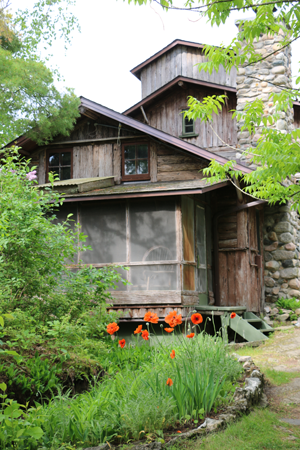2019 Indigenous Knowledge Retreat
 Ernest Oberholtzer Foundation
Ernest Oberholtzer Foundation
August 4 - 10, 2019
Mallard Island, Minnesota
Contact Michael Price:
p: +1 (218) 368-3885
e: Migizee@Yahoo.com
As a participant in the 2019 Indigenous Forest Knowledge Retreat you will learn how to build effective partnerships between the Native community and land stewards in order to create a sustainable existence with the natural world.
Focus and Objectives:
- Introduce Indigenous perspectives of forests and landscapes relative to Anishinaabe language, culture and traditions
- Build proficiency in effective communication with elders and community members relative to the stewardship and kinship with the forests
- Facilitate discussions on historical and contemporary issues relating to climate change, forest management and spiritual human connection to the landscape
View this film:
"Ober's Island, a Living Legacy,"
2009 by film-makers John Ruebartsch and Dena Aronson
Retreat Activities:
- Understanding & applying Anishinaabe perspectives
- Greetings and other salutations using Anishinaabe language
- Anishinaabe indentification of trees and plants
- The 4 R's: Relationship, Reciprocity, Respect and Responsibility
- Anishinaabe star knowledge and nighttime navigation
- Anishinaabe Language Quiz Bowl
- Reflection time and exploring
- Relevant cultural activities
Shortly after you arrive at Mallard Island, we'll have an opening Water Ceremony at the dock followed by a walking tour of the the island and introductions by the retreat Mentors. Paula DeMars will fill us in on the island's logistics. After dinner we'll join in a talking circle and learn a little more about each other.
Suggested Reading:
- What Do Indigenous Knowledges Do for Indigenous Peoples by Kyle Whyte
- Native Knowledge: What Ecologists Are Learning from Indigenous People
- Lessons Learned from Centuries of Indigenous Forest Management
- For U.S. Tribes, a Movement to Revive Native Foods and Lands
- Indigenous Lives within Indigenous Languages
- When Scientists "Discover" What Indigenous People Have Known for Centuries
- Traditional Ecological Knowledge (U of Manitoba)
